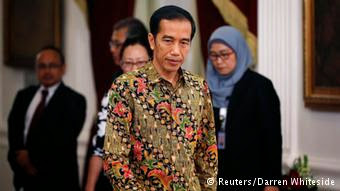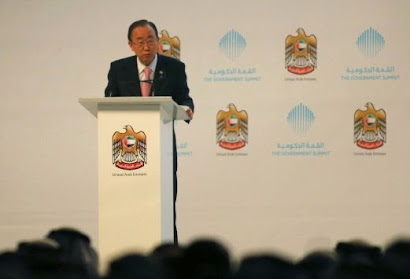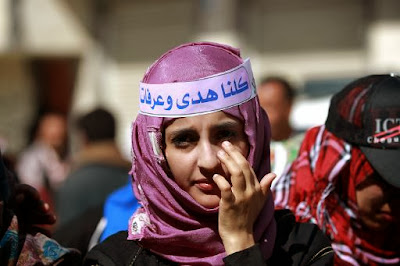Jakarta Globe, Abdul Khalik, November 20, 2013
 |
Prime Minister Mark Rutte and Indonesian Ambassador to the Netherlands Retno
LP Marsudi, side by side in The Hague. (Photo courtesy of Indonesian embassy) |
The
Hague/Jakarta. Cornelis de Houtman, the first Dutch traveler to arrive in
Indonesia and generations of other Dutch officials, traders and investors that
came later, knew well how Indonesia could provide a lifeline for the
Netherlands for hundreds of years, while making themselves very rich in the
process.
And now,
with Europe still struggling to cope with an economic downturn, Indonesia’s
significance is back on the table, offering massive opportunities for the Dutch
economy.
The
Netherlands is sending its largest delegation since the independence of its
former colony in 1945, a visit that has been dubbed by Dutch Prime Minister
Mark Rutte as “the most serious effort to synergize the two countries that have
deep historical ties for the sake of present and future mutual benefits.”
Rutte, who
leads 200 businesspeople representing more than 100 companies and research
institutes on a three-day visit, will meet today with President Susilo Bambang
Yudhoyono as the Netherlands aims to build a new chapter of deeper cooperations
with Indonesia, while trying to offset incidents that have damaged relations
with its former colony in recent years.
“We have a
long and difficult history together. But we must focus on the future, not only
on the past, for the mutual benefits of the two countries,” Rutte told the
Jakarta Globe in an interview in his office last week.
New era of
relations
To show
that the visit is historic and crucial, Rutte and Yudhoyono will sign an
unprecedented joint declaration on comprehensive partnership between the two
countries to take the relations to a new high.
The
declaration will become an umbrella agreement for both countries to boost their
cooperation further.
“The
declaration marks the new era of our relations and cooperation. The partnership
will focus on water management, logistics, infrastructure, food security and
agriculture and education,” said Rutte, who will be accompanied by several key
ministers and officials, including Minister for Foreign Trade and Development
Cooperation Lilianne Ploumen and Minister for Agriculture Sharon Dijksma.
Rutte
stressed that what is important for both the Netherlands and Indonesia is how
the countries can benefit each other in the future.
Bernard
Bot, an influential Dutch senior diplomat and former foreign minister, who
declared in 2005 that the Netherlands acknowledged Indonesia’s independence in
1945, agreed that it’s time for both countries to come to terms with past and
move ahead. “There’s so much we can do together for the sake of our future,” he
said.
“It’s for
real now,” Retno LP Marsudi, the Indonesian ambassador to the Netherlands, said
in a separate interview.
Concrete
offers
On water
management, the Netherlands has funded a master plan for a massive sea wall in
Jakarta Bay to prevent tidal flooding and to manage the flow of water within
the capital.
The area
behind the 35-kilometer long, 15-kilometer wide wall will be turned into office
complexes, malls and other commercial buildings. There is even a plan to
relocate all government offices to the area once it is completed by 2025.
“The master
plan will be finished by early next year and groundbreaking will begin later in
the year,” Retno said.
The
Netherlands, Rutte said, has always had to deal with high water and sea waves
in order to survive, considering that the country is partly below sea level. He
added that his country would bring state-of-the-art technology for Indonesia to
use.
“It’s time
for the Netherlands to empower Indonesians by equipping them to fish, not by
merely providing the fish,” said Jesse Kuijper, a businessman who will join
Rutte to Jakarta and who heads the Netherlands-based Indonesia-Nederland
Society.
On
logistics, Dutch companies could help Indonesia build world-class seaports
across the country while in agriculture several Dutch firms have offered their
Indonesian counterparts investment and technology to enable the country’s
farmers to produce food with the latest technology at a time when prices are
rising and the nation is struggling to feed its people.
“The
Netherlands is the world’s second-largest exporter of agricultural products,
and we have many areas we can work together,” said Rutte.
In education,
Indonesia has asked the Netherlands to treat Indonesian students as local
students, so that they pay lower tuition fees. “It would be an excellent
gesture from the Dutch government if the Indonesian students are treated as
locals,” said Kuijper.
Difficult
time in Europe
Rutte
acknowledged that Europe and the Netherlands are facing tough times. “We have a
difficult period at the moment. I do believe that we have made good strides but
there is still a long way to go,” he said.
He said he
admired Indonesia’s high economic growth of 6 percent annually. “We are
jealous,” he said, smiling.
The latest
figures from the Dutch Central Bureau of Statistics (CBS) show the Netherlands
economy grew by just 0,1 percent in the last quarter compared to the previous.
The CBS
also reported that there were 46,000 fewer jobs in the third quarter.
“Indonesia
can offer Dutch businesspeople a place for investment with a huge market of 240
million people and a growing middle class of over 100 million, as well as entry
gate to the bigger market of Asean,” said Aleksius Jemadu, dean of Pelita
Harapan University’s School of Social and Political Sciences.
He said the
Netherlands now sees Indonesia as a successful democracy with long-term
stability. “Relations between Indonesia and the Dutch should be more special —
more than other ties — because we have a long history together. We can
synergize, with Indonesia providing natural resources and markets and the Dutch
providing capital, knowledge and technology,” Aleksius said.
He added
that the Netherlands can offer Indonesia the opportunity to become a producer
and not just a consumer. “It is now depending on Indonesia to realize the
goals,” Aleksius said.
The
Netherlands already is Indonesia’s second-biggest trading partner in Europe. In
2012, trade between the two countries was worth $4.7 billion.
Blast form
the past
Relations
between Indonesia and the Netherlands have experienced ups and downs, with two
incidents proving particularly embarrassing for leaders of both countries in
the last few years.
President
Yudhoyono was forced to cancel his trip to the Netherlands in 2010 after a
group of Moluccan independence activists filed a motion in the Dutch courts to
arrest the president for gross human right violations in Maluku and Papua.
Relations
became tense after the trip was canceled, with many in Indonesia blaming the
Dutch for insulting Yudhoyono.
The
relations plunged into a new low when the Dutch government had to cancel the
sale of Leopard tanks to Indonesia last year after the parliament voted to
reject the deal. Indonesia then angrily turned to Germany to buy the same
tanks.
Rutte, who
loves Indonesian food like nasi goreng and sate and whose parents lived for
some time in Indonesia, gave assurances such incidents would not happen again
under his administration. “In fact, we are expecting President Yudhoyono to
visit us next year,” he said.
About the
Moluccan activists, Retno said everybody has the right to keep on dreaming.
“But the question is whether or not it is realistic.”
She said
relations between the two countries are getting better, with both sides
understanding and trusting each other.
Retno also
said the close connections between the people of the two countries meant
Indonesia and the Netherlands could not afford to let relations cool.
Currently,
10 percent of the Netherlands’ 17 million population has direct or indirect
links to Indonesia. And every year, Retno said, thousands of Indonesians travel
to the Netherlands as tourists or for business, with the Dutch doing likewise.
Aleksius
said fewer and fewer people in Indonesia see the Netherlands as a former
colonial power.
“I don’t
think it matters much now. People are becoming pragmatic, seeking concrete
benefits and looking forward instead of being bothered by the past,” he said.
 |
Netherland’s Prime Minister Mark Rutte, left, poses with Indonesia’s President
Susilo Bambang Yudhoyono, right, during a visit at the presidential palace in
Jakarta on Nov. 20, 2013. (AFP Photo/Adek Berry) |
Related Articles:
 |
Dutch Prime
Minister Mark Rutte hold Wednesday’s edition
of the Jakarta Globe after meeting
with Indonesian President
Susilo Bambang Yudhoyono. (JG Photo)
|




















